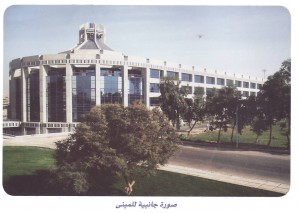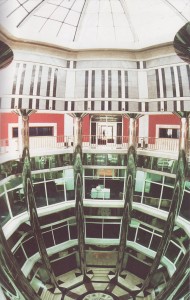Enppi Chairman
ENPPI, (ENGINEERING FOR THE PETROLEUM AND PROCESS INDUSTRIES) CHAIRMAN AND CEO
1980-1990
Enppi grew over a span of 10 years to achieve local and international recognition as a technology leader in Egypt and the Middle East. By 1990, the company had completed on schedule in 21 months its present building designed and built according to the best engineering norms within budget and fully paid for in cash. Company population grew from 100 to 600. Its references in number of contracts grew from 4 to 70 major contracts and 30 smaller contracts. Scope of activities expanded by 1985 from engineering only to “turn-key” in oil refining, oil and gas production and gas processing.
Share value grew 170 fold. Company assets and liquid reserves in 1990 were valued at LE 340 million after dividends distributions with no capital injection from shareholders. This included LE 157 million in time deposits. Enppi’s turnover grew from LE 2 million in 1980 to LE 130 million in 1989.
It was the first in Egypt to introduce personal computers in 1983, computer aided design and drafting (CADD) in 1985. Offshore platform design capability was gained by 1987. As the financial reserves of Enppi grew, the computerization of Enppi operations expanded. A mainframe and a large number of PCs were installed. Enppi engineers authored over 600 software programs in various disciplines. Few Bureau programs were acquired either by direct purchase or under license.
International Procurement played a crucial role in the successful completion of Assiut Refinery Project which Enppi completed five months ahead of contractual schedule and received early completion bonus. Gradually Enppi gained credibility and reputation with suppliers and shipping companies. By adding this department, Enppi was in a position to contract and execute turn-key projects either lump sum or reimbursable. Profits made from such contracts enhanced Enppi profits which could not have been realized by limiting its activities to engineering only. It also enabled Enppi to respond to Egyptian clients requiring turn-key single responsibility.
We introduced a novel approach whereby financing banks paid directly to foreign suppliers according to Enppi loan agreements with Italian and UK banks or consortiums of lenders. Enppi was the first borrower and the plant owner was the second borrower. That is, all loan obligations were transferred to owner at project hand-over and he then became solely responsible for paying back the installments.

